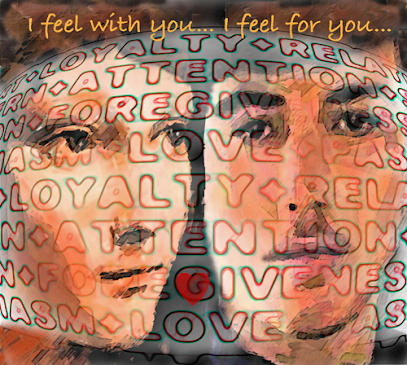PEDAGOGY OF UNIVERSITY
After twenty-one years immersed in the rigorous study and pedagogy of Classics at the University of Cambridge, I tendered my resignation-a decision precipitated not by disenchantment, but by an unyielding fidelity to the preservation of higher education’s erstwhile eminence. Once a bastion of intellectual liberty and erudition, the university has suffered a gradual attrition of its foundational values. Upon my arrival two decades prior, the academic milieu was invigorated by titans of scholarship who cultivated an ethos of unfettered engagement. Students navigated the labyrinth of lectures and seminars unimpeded by hierarchical strictures, and the halls reverberated with dialectical exchanges that endured into the nocturnal hours. The unique supervision system, demanding the distillation of abstruse concepts into cogent arguments under the meticulous scrutiny of seasoned scholars, epitomized the institution’s commitment to intellectual rigor and curiosity.
This rarefied culture engendered humility, adaptability, and critical acuity-traits underpinning Cambridge’s unparalleled contributions to the arts and sciences. Yet, such traditions now teeter on the precipice of obsolescence, imperiled by the inexorable encroachment of administrative overreach and the proliferation of policies that subvert meritocratic principles. For centuries, academic achievement was publicly lauded; class lists, once conspicuously displayed, have vanished under the aegis of “data protection,” extinguishing the competitive fervor that galvanized generations. Examinations, too, now face existential threats, with open-book formats and coursework supplanting the venerable crucible of closed-book rigor. Concurrently, the specter of artificial intelligence renders academic integrity increasingly precarious.
The landscape is further complicated by an unprecedented surge in declared disabilities, particularly in the realm of mental health and learning difficulties, fundamentally recalibrating the academic framework.
The exponential expansion of the Accessibility and Disability Resource Centre has mandated sweeping pedagogical and assessment reforms. While inclusivity is laudable, the concomitant concessions-lenient deadlines, acceptance of bullet-point essays, and generous examination accommodations-risk attenuating the intellectual challenges that once defined a Cambridge education. Grade inflation exacerbates the malaise, rendering academic failure virtually obsolete through mechanisms that allow students to circumvent the repercussions of underperformance.
This infantilization of education, propelled by administrative expediency, academic dissent, and student complacency, corrodes the university’s intellectual integrity. The once-intense eight-week term is now punctuated by proposals for “recovery weeks”; lectures are ubiquitously recorded for on-demand consumption, and declining attendance undermines the communal esprit de corps. Reading lists are truncated, full texts rarely assigned, and the proliferation of “content warnings” insulates students from confronting intellectually challenging material. These phenomena are symptomatic of a broader reluctance to uphold rigorous standards, further exemplified by the imposition of diversity quotas in admissions. While the ostensible aim is to enhance accessibility, meritocratic selection is often sacrificed, marginalizing candidates from independent schools irrespective of their individual merit.
The administrative apparatus has metastasized to unprecedented proportions, eclipsing the academic voices that once governed Cambridge. Bureaucratic hierarchies, inflated remuneration, and proliferating sinecures signal a departure from the university’s traditional collegial structure, where shared governance prevailed. The centralization of authority, coupled with the erosion of college autonomy, undermines the distinctive character of Cambridge’s micro-communities. Even the ancient Combination Room, a linchpin of academic fellowship, has been unceremoniously shuttered, emblematic of the institution’s retreat from its foundational ethos.
This decline is most acutely manifest in the humanities and social sciences, where the narrowing of knowledge and dilution of expectations betray a profound loss of institutional purpose. The principles of grading, competition, and intellectual hierarchy are now contested, leaving the most gifted students disillusioned. As administrative fiat increasingly supplants academic wisdom, the chasm between tradition and transient ideology widens. This trajectory, though most visible at Cambridge, mirrors a broader malaise afflicting higher education; should Cambridge capitulate to this decline, the repercussions will reverberate throughout the nation’s intellectual and cultural edifice. For those who cherish its legacy, the transformation is a source of deep lamentation-the university I depart is a pale shadow of the one I once revered.
W0RDS TO BE NOTED
Malaise – A general feeling of discomfort or unease.
Capitulate – To surrender or give in.
Reverberate – To have continuing and spreading effects.
Lamentation – Expression of grief or sorrow.
Pale shadow – A greatly diminished or inferior version
Collegial structure – Organization based on shared decision-making among colleagues.
Micro-communities – Small, distinct groups within a larger community.
Linchipin – A person or thing vital to an enterprise or organization.
Unceremoniously – Done suddenly and without formalites.
PARA SUMMARY-After more than twenty years teaching at Cambridge University, the author decided to resign, not out of unhappiness, but because of concerns about how the university is changing. The author remembers Cambridge as a place full of open discussion, high academic standards, and strong competition. However, over time, the university has become more focused on administrative rules and less on academic excellence. Changes like removing public rankings, making exams easier, and giving more special allowances to students have, in the author’s view, weakened the university’s standards. There are also more managers and fewer decisions made by teachers. The author worries that these trends are making education less challenging and less meaningful, and that Cambridge is losing the qualities that once made it great. This, the author believes, is not just a problem for Cambridge, but for higher education everywhere.




Comments
Post a Comment